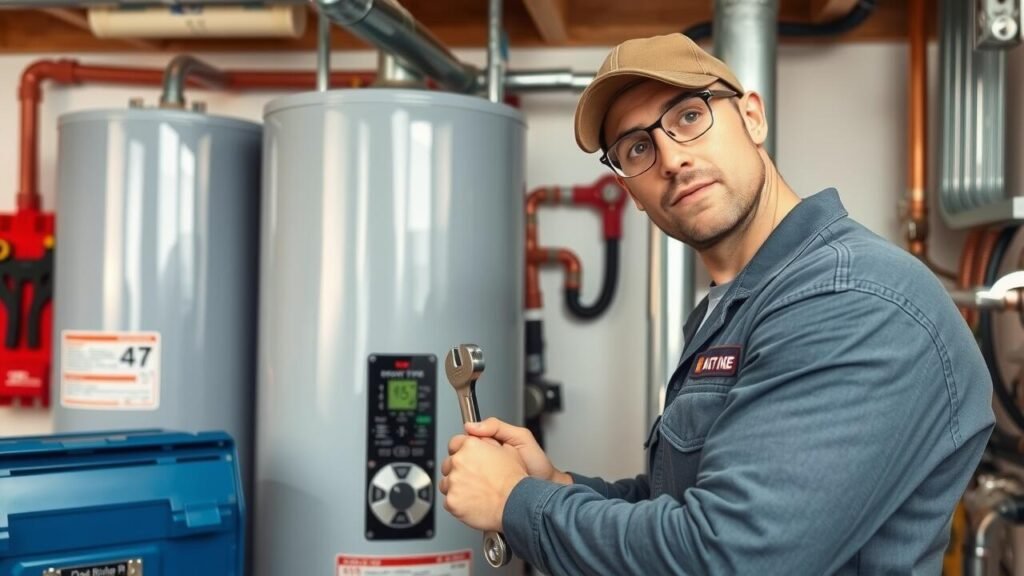Cost Considerations
Cost is a significant factor when considering a water heater replacement. Pricing can vary widely based on the type of water heater chosen, local labor rates, and additional installation requirements. On average, homeowners can expect to spend anywhere from $800 to $3,000, depending on whether they opt for a traditional tank system or a more modern tankless model. It is essential to factor in both the purchase price and the installation fees when budgeting for this project.
Before committing to a replacement, obtaining multiple quotes from local professionals can provide valuable insight. Searching for “Water Heater Repair and Installation near me” can yield various choices, allowing homeowners to compare services and costs. Customers should also inquire about warranties or service plans that may impact long-term expenses. Understanding all these cost variables helps in planning a budget effectively.
Budgeting for Replacement
Replacing a water heater requires careful budgeting to avoid unexpected expenses. Costs can vary significantly based on the type of heater chosen, labor rates in your area, and any additional installation requirements. It’s important to factor in both the purchase price of the new unit and installation fees. Researching local professionals can help you find reliable options. Searching for “Water Heater Repair and Installation near me” can yield a list of qualified plumbers who can provide estimates.
In addition to the direct costs, consider any potential upgrades necessary for your home’s plumbing or electrical systems. If the new water heater is of a different type or capacity than the previous unit, adjustments may be needed. This could involve additional materials or modifications to accommodate the new system. Being proactive in planning for these expenses can ensure that your budget remains intact and minimize surprises on installation day.
Choosing the Right Water Heater
Selecting the right water heater involves considering various factors, including fuel source, size, and energy efficiency. Traditional tank water heaters are often less expensive upfront but may cost more in energy bills over time. Tankless models provide hot water on demand and can be a more energy-efficient option, but their initial cost is typically higher. To make an informed decision, homeowners should evaluate their hot water usage and consider consulting with professionals who specialize in Water Heater Repair and Installation near me.
Energy efficiency ratings play a crucial role in determining the long-term costs associated with a water heater. Models with higher efficiency ratings can lead to significant savings on energy bills, making them a worthwhile investment. Homeowners should also check for any available rebates or incentives that may apply to energy-efficient purchases. By doing research and asking local experts about Water Heater Repair and Installation near me, individuals can find the best fit for their needs while being mindful of energy consumption.
Energy Efficiency Ratings
Energy efficiency ratings are critical when selecting a new water heater. These ratings indicate how much energy the unit consumes relative to the amount of hot water it produces. A higher rating typically means lower energy bills and a smaller carbon footprint. Consumers often look for the Energy Star label, which signifies that the water heater meets specific energy efficiency guidelines set by the U.S. Environmental Protection Agency. When considering efficiency, it’s wise to evaluate potential long-term savings alongside the initial purchase price.
Choosing an energy-efficient water heater can also impact its longevity and performance. Models that utilize modern technology, such as heat pump or tankless systems, often provide better efficiency compared to traditional tank heaters. Homeowners should assess their hot water needs and budget while searching for options. Seeking local assistance through online searches like “Water Heater Repair and Installation near me” can help in finding professionals familiar with the latest models and energy-efficient solutions.
Preparing for Replacement Day
Preparing for the arrival of a plumber can streamline the process of replacing your water heater. Start by clearing the area around the current unit. Remove any personal items, tools, and debris to provide easy access for the plumber. This step not only enhances safety but also allows the technician to work more efficiently. Checking if the water supply is turned off is equally important, as it can prevent unnecessary flooding during the replacement.
Homeowners should also gather any relevant documents regarding the current water heater model. This information can help the plumber determine the best new unit to match your needs. If you’re unsure which model to choose, searching for “Water Heater Repair and Installation near me” can yield local professionals with recommendations on efficient options. Ensuring everything is in order beforehand contributes to a smoother installation experience.
What to Do Before the Plumber Arrives
Prior to the plumber’s arrival, it’s important to prepare the area around your current water heater. Clear any clutter and ensure there is easy access to the unit. This extra effort can help the technician work more efficiently, allowing for a quicker replacement process. If applicable, turn off the power supply or gas line connected to the water heater to ensure safety during the installation.
Another critical step is to gather any relevant paperwork regarding your current water heater. This might include installation dates, service records, and warranty information. You could also take a moment to research options by searching “Water Heater Repair and Installation near me” to get an idea of potential replacements and their costs. Having this information ready can streamline discussions with your plumber and facilitate a more efficient installation experience.
FAQS
How long does it typically take for a plumber to replace a water heater?
On average, it takes about 2 to 4 hours for a plumber to replace a water heater, depending on the complexity of the installation and the type of water heater being replaced.
Are there any factors that can affect the time it takes to replace a water heater?
Yes, several factors can influence the duration, including the type of water heater, the condition of existing plumbing, accessibility of the installation area, and whether any additional modifications are needed.
Do I need to be home while the plumber replaces my water heater?
It is not necessary to be home, but it is recommended to be available to answer any questions or provide access to the plumbing area.
Will the plumber provide me with an estimate of how long the replacement will take?
Most plumbers will provide an estimated timeframe before starting the work, based on their experience and the specifics of your installation.
Can I use hot water during the replacement process?
It is generally not recommended to use hot water during the replacement, as the water supply will be turned off while the plumber is working on the installation.

